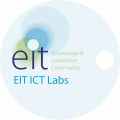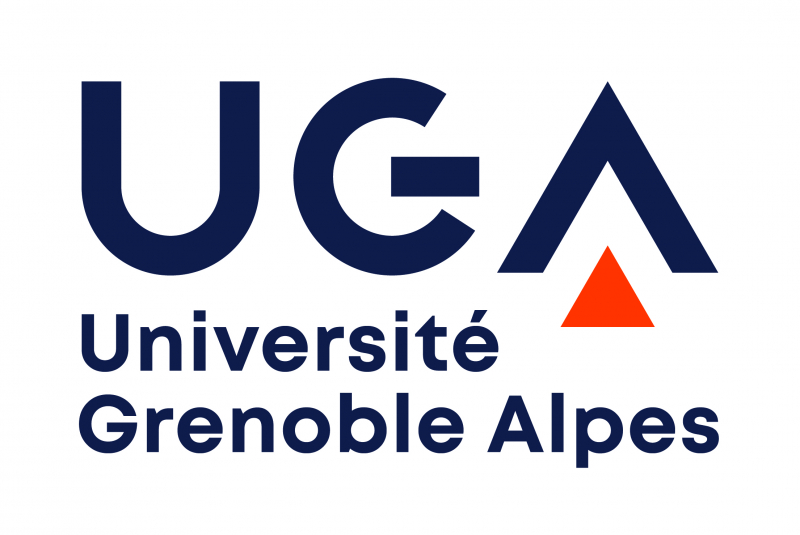Summer School on Cyber-Physical Systems
Summer School on Cyber-Physical Systems
Organized by EIT ICT Labs and PERSYVAL-Lab
July 8-12, 2013 Grenoble, France
General Info Program Application & Registration Venue Hotel Social Event Slides Videos
News:
- September 15: Videos of the lectures are online!
- July 15: Slides of speakers are arriving.
- July 4: Participant's booklet can be downloaded here.
- June 26: Social event announced
- June 24: Student sessions announced.
- May 13: New speakers confirmed.
- April 25: New deadlines.
- April 13: New speakers confirmed.
EIT ICT Labs and PERSYVAL-Lab are organizing the first edition of the CPS Summer School. The CPS Summer School will explore the manifold relationship between networked embedded systems and humans as their creators, users, and subjects. The format of the Summer School will be a five days meeting, organized around different aspects of rigorous engineering of Cyber Physical Systems.

Scientific Organization
EIT ICT Labs is one of the first Knowledge and Innovation Communities set up by the European Institute of Innovation and Technology, as an initiative of the European Union. EIT ICT Labs mission is to drive European leadership in ICT innovation for economic growth and quality of life.
PERSYVAL-Lab focuses on pervasive systems and algorithms at the convergence of physical and digital worlds. PERSYVAL-lab is built over high-level research laboratories present at Grenoble in Mathematics, Computer Science, Automatic Control, Signal Processing, and Hardware Architecture.
Domain
Cyber-Physical Systems (CPS) are engineered systems that are built from and depend upon the synergy of computational and physical components. CPS are becoming an important part of our daily life. Humans build, deploy, use, and maintain these systems that can sense our activities and influence our behavior. Examples of the many CPS application areas include the smart electric grid, smart transportation, smart buildings, smart medical technologies, next-generation air traffic management, and advanced manufacturing. CPS are expected to have great technical, economic and societal impacts in the near future.
CPS will transform the way people interact with engineered systems, just as the Internet transformed the way people interact with information. We will increasingly rely on these networked embedded systems, therefore also requiring a secure and privacy-preserving treatment of sensitive human-centric data. Novel paradigms and solutions are also needed to allow humans to interact with these systems. However, these goals cannot be achieved without rigorous systems engineering. Emerging CPS will be coordinated, distributed, and connected, and must be robust and responsive. The CPS of tomorrow will need to far exceed the systems of today in capability, adaptability, resiliency, safety, security, and usability.
The Summer School on Cyber-Physical Systems aims at bringing together researchers from industry and academia. This school explores the manifold relationship between networked embedded systems and humans as their creators, users, and subjects. The format of the Summer School will be a five-day meeting, organized around different aspects of rigorous systems engineering of Cyber-Physical Systems.
Goals
The goal of the summer school is to survey fundamental and applied aspects of CPS and their relationship to humans, as well as to identify novel opportunities and research directions in these areas through a series of lectures by international experts. Participants will also experience the relevant technologies during hands-on courses and be given a chance to present their own work. The school will provide a great opportunity to know other people working in the field, to meet distinguished scholars, and to establish contacts that may lead to research collaborations in the future.
Classes will range from basics of sensors to experience from real-world deployments, security, privacy, and dependability, debugging and validation of networked embedded systems, cyber-physical internet, online data Mining, virtual reality, rigorous CPS engineering, networked control systems, management and maintenance of networked embedded systems, interacting with networked embedded systems, applications such as smart energy and smart health-care.
Students participating at this summer school will learn the current state of the art in CPS and will be able to apply new techniques coming from various communities and backgrounds to their own domain. The CPS Summer School will be held at Grenoble University. Courses will be given in English by experts from industry and academia working in various fields of CPS.
Topics
- Computer security and cryptography.
- System modelling.
- Medical devices.
- Sensor networks.
Invited Speakers
- Prof. Jean-Claude Bajard - UPMC (France).
- Prof. Gilles Barthe - IMDEA Software Institute (Spain).
- Prof. Manfred Broy - TU Munich (Germany).
- Olivier Coutelou - Schneider Electric Grenoble (France).
- Prof. Alexandre David - Aalbord University (Denmark).
- Dr. Julien Francq - Cassidian (France).
- Prof. Yassine Lakhnech - Verimag (France).
- Prof. Kim G. Larsen - Aalborg University (Denmark).
- Dr. David Lesens - Astrium Space Transportation (France).
- Prof. Peter Marwedel - TU Dortmund (Germany).
- Prof. Doron Peled - Bar Ilan University (Israel).
- Prof. Pavithra Prabhakar - IMDEA Software Institute (Spain)
- Dr. Emmanuel Prouff - ANSSI (France).
- Prof. Oleg Sokolsky - University of Pennsylvania (USA).
- Prof. Prof. M. Törngren - KTH (Sweden).
- Dr. Jocelyne Troccaz - TIMC/CNRS, Grenoble (France).
- Dr. Thomas Watteyne - Dust Networks, Inc., Hayward (USA).
Target audience
The CPS summer school is open to students from different backgrounds and levels connected to CPS.
The target audience ranges from Ph.D. students working in a field related to CPS to Master and engineering students in embedded systems, control systems, networked control systems, wireless, computer science. Researchers and engineers from companies are welcome, and may greatly benefit from the broad vision provided by this Summer School.
Since attendance is limited, priority will be given to Ph.D. students and companies' staff.
Scientific Board
- Prof. Manfred Broy (TUM, München).
- Prof. Joseph Sifakis (EPFL, Lausanne, and Verimag, Grenoble).
- Prof. Kim G. Larsen (Aalborg University).
- Prof. Marie-Christine Rousset (PERSYVAL-Lab and LIG, Grenoble).
Organization Committee
- Saddek Bensalem - University of Grenoble (France).
- Maria Victoria Cengarle - fortiss (Germany).
- Alessandro Cimatti - Fondazione Bruno Kessler (Italy).
- Nicolas Halbwachs - CNRS/Verimag (France).
- Martin Torngren - KTH Royal Institute of Technology (Sweden).
- Harald Ruess - fortiss (Germany).
Local Organization Committee
- Saddek Bensalem - University of Grenoble (France).
- Ylies Falcone - University of Grenoble (France).
- Nicolas Halbwachs - CNRS/Verimag (France).
- Erwan Jahier - CNRS/Verimag (France).


 Connexion
Connexion





